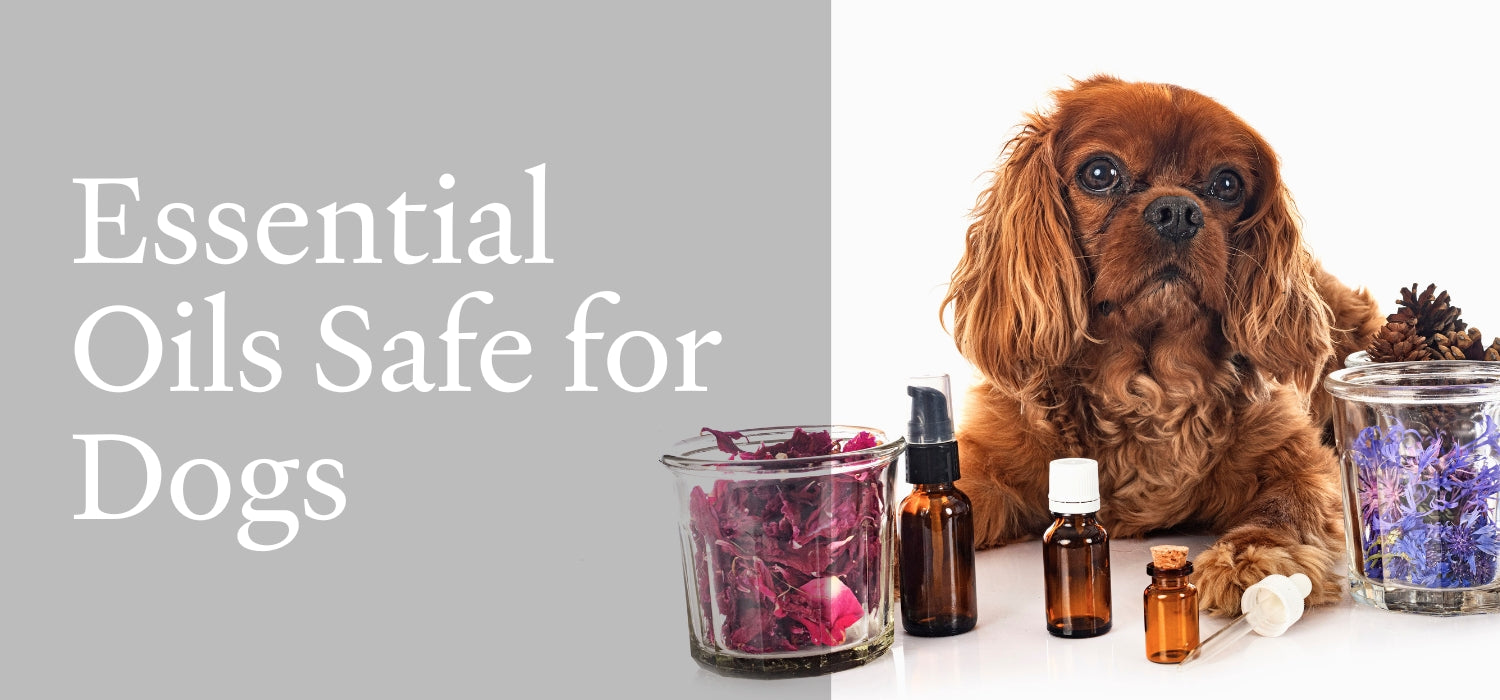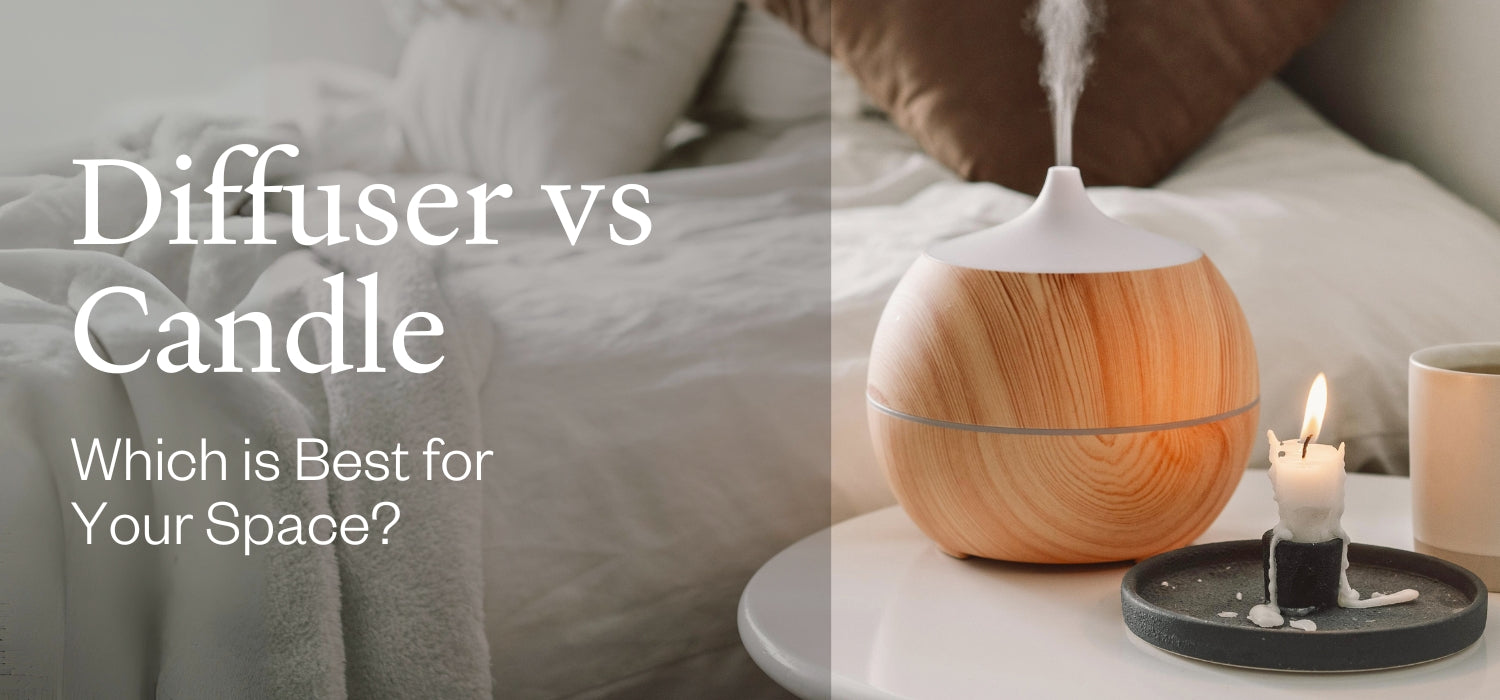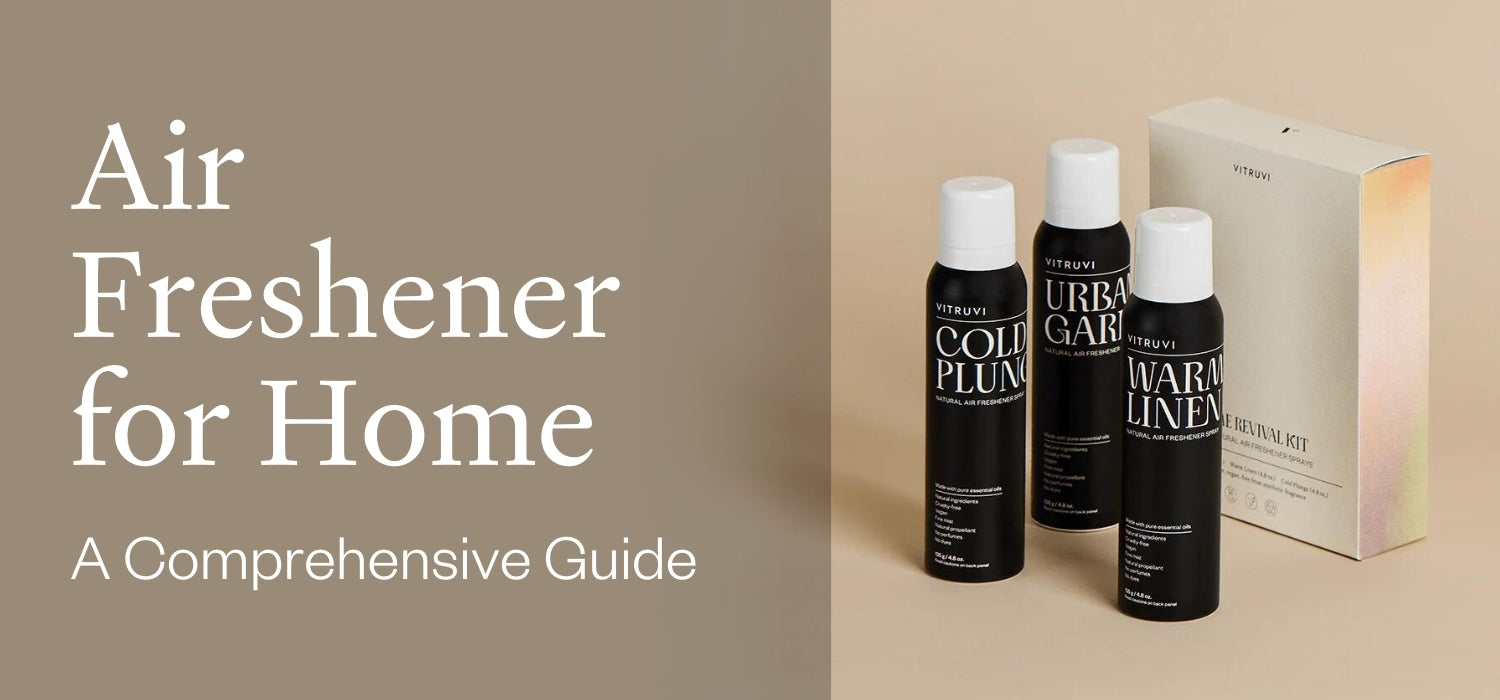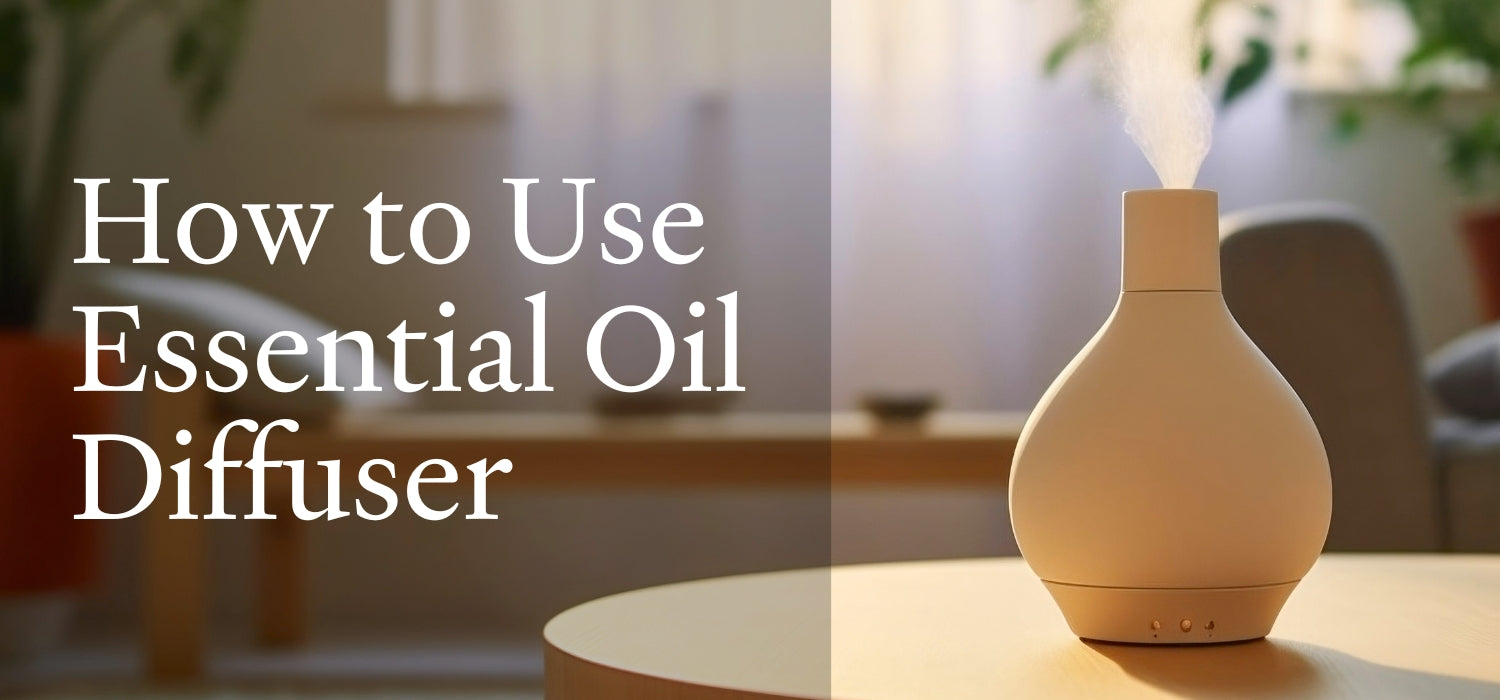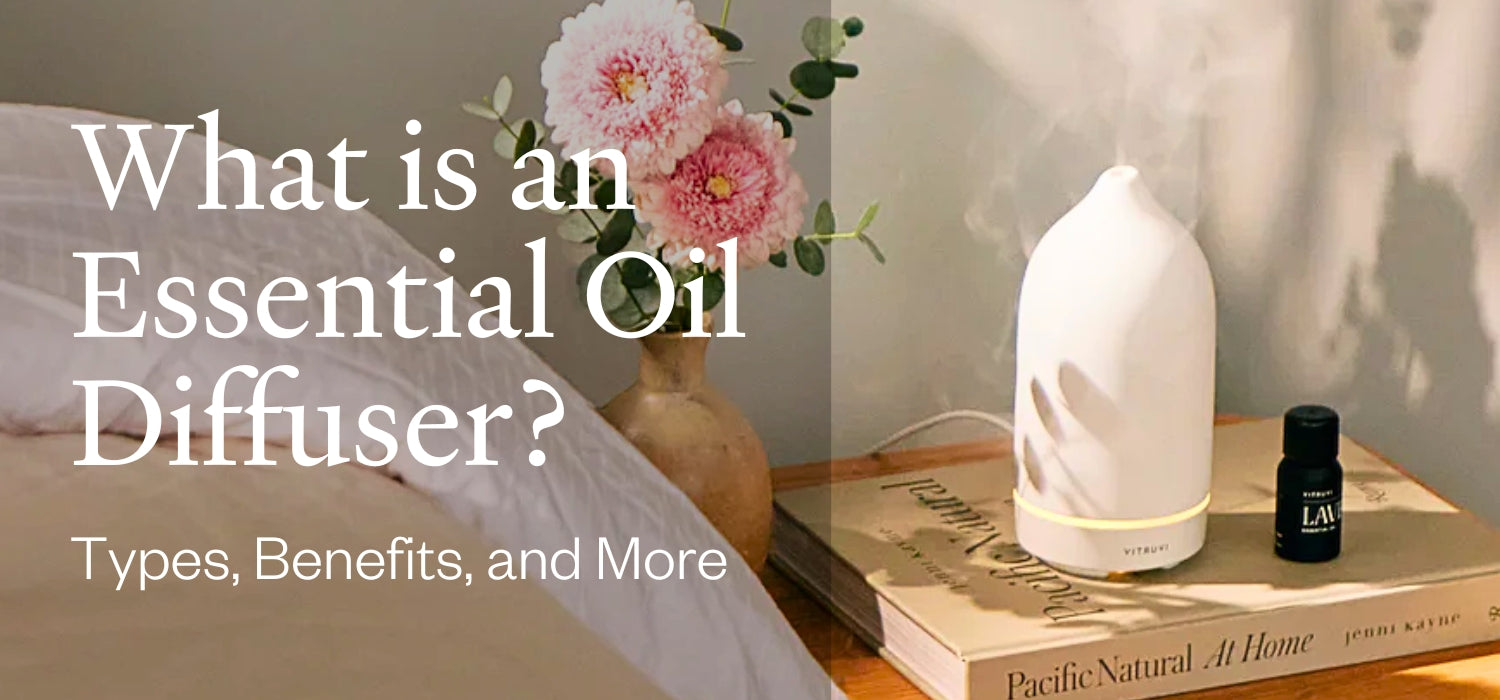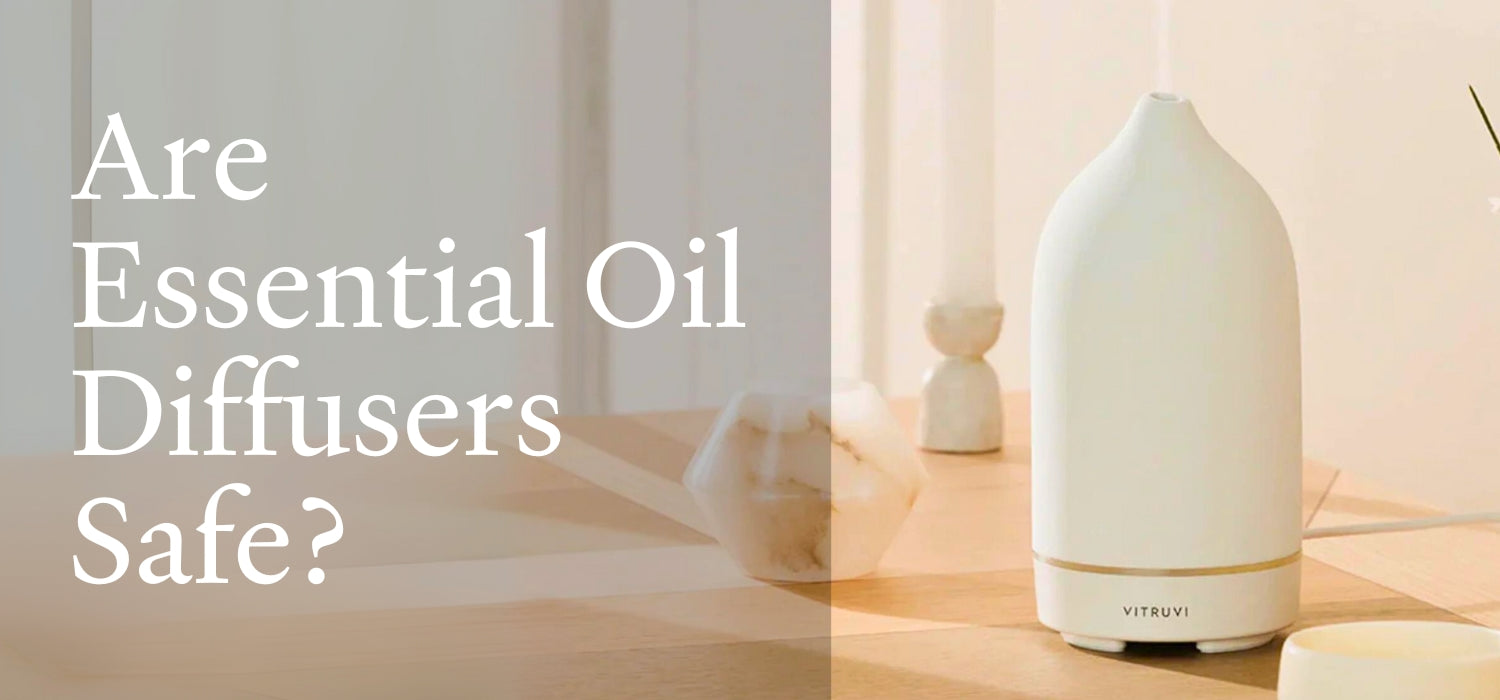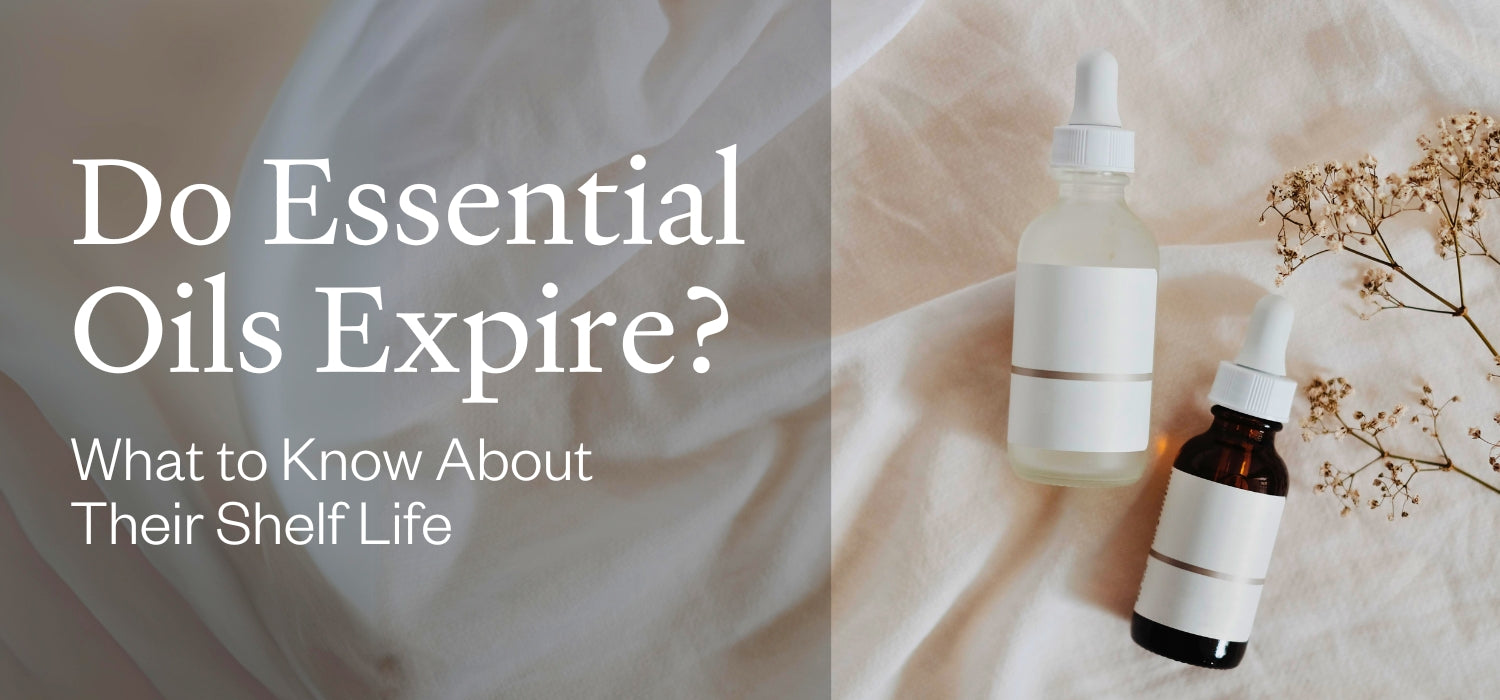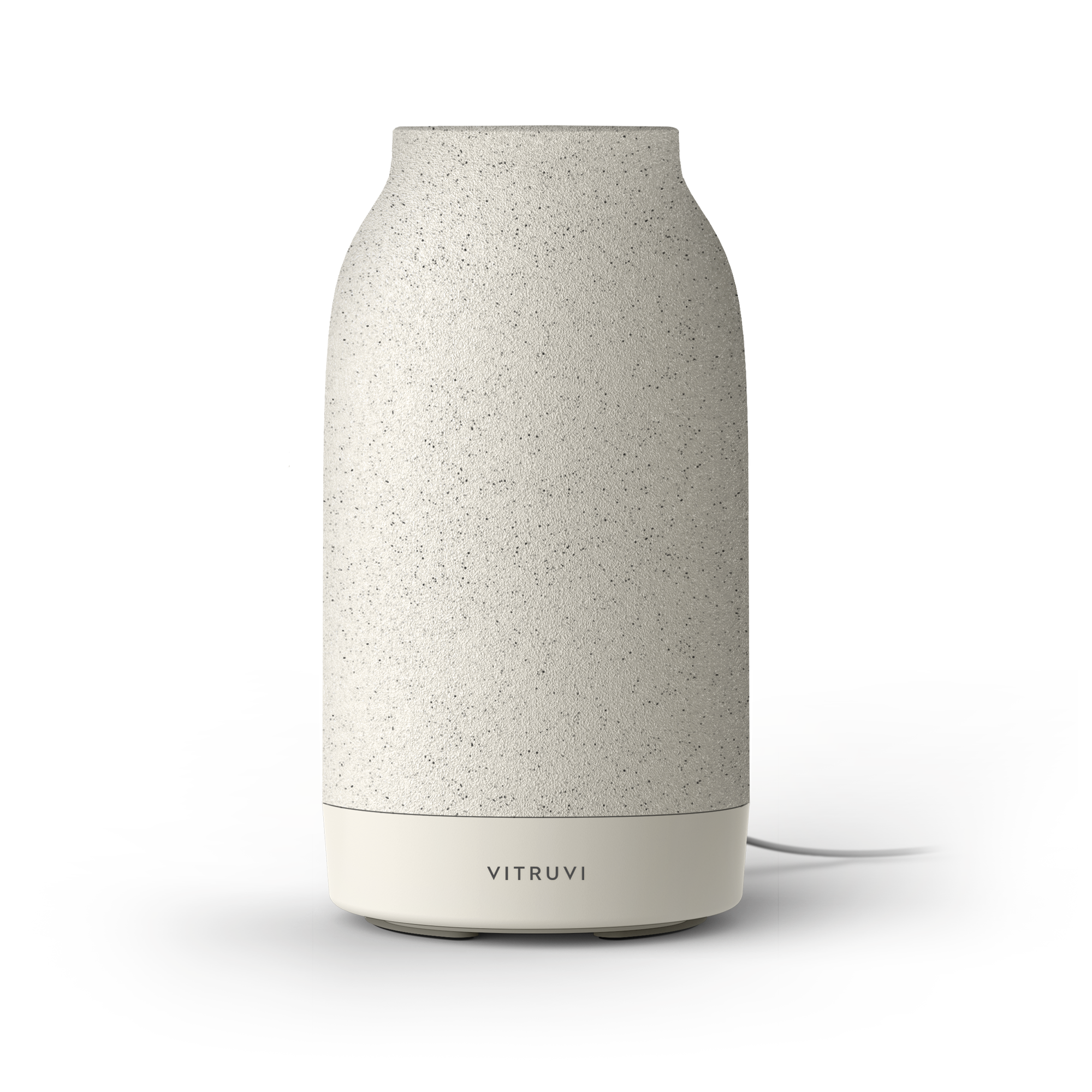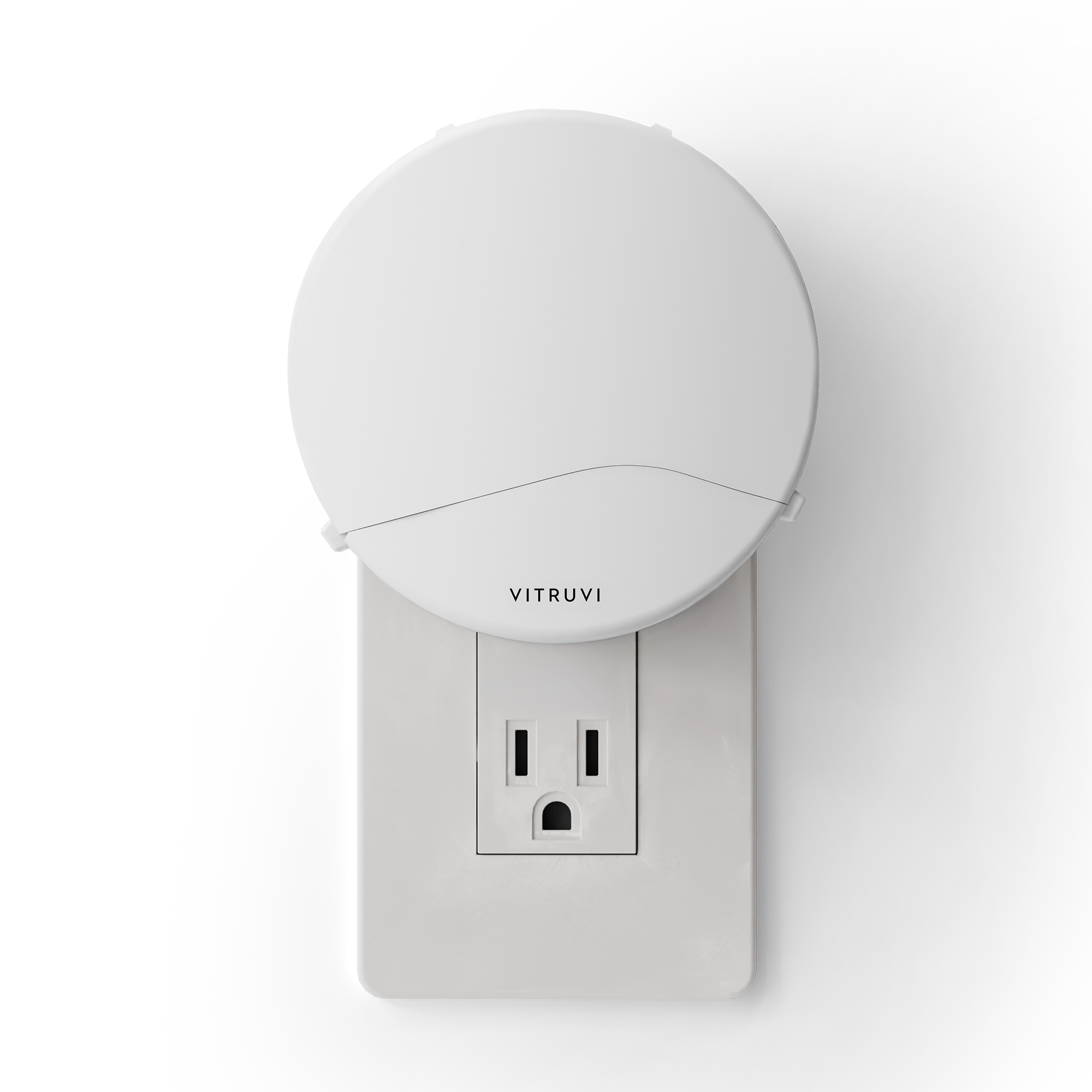Essential oils are gaining popularity for their wellness benefits, such as stress relief and better sleep. This has naturally made pet owners curious whether these can be used around their dogs safely.
This is essential information, as dogs are more sensitive to these oils, and some can even be harmful to them.
The good news is you can use essential oils or blends by diffusing them. This way, you can enjoy the pleasant smells without putting your pet at risk.
Read on to discover which oils are safe, which ones to avoid, how to use them properly around your dog, and more vital facts to keep you and your dog happy and healthy.
Why It Is Important to Know Which Essential Oils Are Safe for Dogs
Dogs are far more sensitive to essential oils than humans. Their heightened sense of smell and the way their bodies process certain chemicals make them vulnerable to toxicity.
Exposing them to certain oils can lead to skin irritation, respiratory problems, or, even worse, toxicity.
This is why it is vital for dog owners to know which essential oils are safe and which can pose a threat.
Always take precautions when using essential oils, especially around dogs. Stick to essential oils known to be safe for pets, and ensure that your dog is in a well-ventilated room when using a diffuser.
7 Top Safe Essential Oils for Dogs

Not all essential oils are harmful to dogs. In fact, several oils can offer benefits when used safely—either through diffusers, applying them topically, adding them to bathing products, or creating your own DIY products.
Below are some of the top essential oils considered safe for dogs, along with their benefits.
1. Lavender
Lavender is known for its calming effects. It helps reduce anxiety and stress, which makes it helpful for pets during thunderstorms or long car rides.
Lavender can also soothe itchy or irritated skin—relieving dogs with allergies or dry skin.
2. Chamomile
Chamomile is another safe and soothing essential oil for dogs, perfect for calming nerves and promoting better sleep. It also has anti-inflammatory properties, which can be beneficial for skin irritations.
3. Ginger
Ginger essential oil is a good option for dogs who experience nausea or digestive issues. It helps alleviate symptoms like vomiting and indigestion, especially during car rides.
Ginger is gentle on the system when diffused and can help dogs feel more comfortable during periods of stomach upset.
4. Lemon
Lemon essential oil can uplift your dog’s mood with its refreshing and energizing scent. It also has natural antibacterial properties that can help freshen up your home.
However, lemon oil should always be diffused and never applied directly to your dog, as citrus oils can be too strong when not diluted.
5. Frankincense
Frankincense is a calming oil that can help to relieve stress and anxiety.
It is often used to promote relaxation and emotional balance. This makes frankincense an excellent choice for pets with separation anxiety. Additionally, frankincense also supports healthy immune system function.
6. Bergamot
Bergamot oil, known for its uplifting, citrusy scent, helps reduce stress and improve mood for dogs and their owners. It has natural calming properties that can be beneficial during stressful situations.
7. Cedarwood
Cedarwood is a versatile essential oil that promotes relaxation and is a natural insect repellent, making it especially useful for dogs who love staying outdoors.
Its calming properties make it a good option for reducing stress, and its ability to repel fleas and ticks adds an extra layer of protection for your pet.
When diffused, cedarwood creates a calming, pest-free space for your dog to relax.
REMEMBER: Use essential oils sparingly and dilute them before applying. Avoid using them on dogs with breathing problems or seizures.
Essential Oils to Avoid Around Dogs
While the oils listed above are generally safe for dogs, several other essential oils should be avoided around your pet.
These oils are toxic to dogs and can cause serious health problems if inhaled, ingested, or absorbed through the skin.
1. Tea Tree Oil
Extremely toxic to dogs, tea tree oil can cause symptoms such as weakness, vomiting, and even central nervous system depression if ingested or applied.
2. Peppermint
While peppermint oil may smell refreshing to us, it can cause serious respiratory issues and gastrointestinal upset in dogs.
3. Eucalyptus
Eucalyptus oil is dangerous for dogs. It can cause breathing difficulties and extreme lethargy, which can be life-threatening. While it is often used in human wellness routines, it is best to skip this one when pets are nearby.
4. Clove Oil
Clove oil is another essential oil that is harmful to dogs. It can cause seizures and tremors and, in some cases, can also be fatal.
5. Cinnamon Oil
Cinnamon oil can lead to vomiting, diarrhea, and lethargy in dogs. What smells warm and comforting to us can actually be toxic to your dog. If you love cinnamon scents, choose safer alternatives to keep your pet safe.
How to Safely Use Essential Oils for Dogs
Safety is key when using essential oils around your dog. There are a few methods you can try, but always make sure to use the right oils and dilute them properly.
1. Diffusing

Using an essential oil diffuser is one of the safest ways to use essential oils around your dog. A diffuser spreads the scent into the air, allowing your pet to enjoy the calming effects without direct contact.
Use a diffuser in a well-ventilated room to spread the scent safely. Start with a few drops and observe your dog to see if they like it.
2. Topical Application
Topical application of essential oils can also be safe, but it requires extra caution.
Oils should always be heavily diluted with a carrier oil like coconut oil before being applied to your dog’s fur or skin. Never apply essential oils directly to open wounds, sensitive areas, or your dog's face.
For topical use, it is best to consult your vet beforehand.
3. Bathing Products
You can add essential oils to your dog’s shampoo or bath products for a more relaxing experience.
Again, dilution is key.
Only a few drops of a safe essential oil, such as lavender or chamomile, should be mixed into their shampoo.
4. DIY Products
Creating your own DIY products, like sprays or paw balms, allows you to control the ingredients and ensure they are safe for your pet.
For example, a dog deodorizing spray can be made by mixing distilled water, glycerin, and a few drops of dog-safe essential oils like lavender or orange.
Always test a small area first to ensure your dog does not have a reaction.
Signs of Essential Oil Poisoning in Dogs
Knowing the signs of essential oil poisoning can help you act quickly if your dog is exposed. Here are some key symptoms to look out for.
- Excessive drooling
- Vomiting or diarrhea
- Difficulty breathing or rapid breathing
- Lethargy or weakness
- Excessive thirst
- Unsteady walking or tremors
- Seizures
- Red, irritated skin or eyes
IMPORTANT: See a vet immediately if your dog shows these symptoms. Quick action can prevent serious problems.
Frequently Asked Questions (FAQs)
This section addresses common questions related to essential oils being safe for dogs.
Can I Use Essential Oils to Make My Dog Smell Better?
Yes. Essential oils can be used to freshen up your dog's fur, but only when safe kinds are used and diluted beforehand.
You can add them to shampoo or conditioner or make a spray with the ingredients below.
- 2 cups distilled water
- 2 tbsp glycerin
- 1 tbsp fractionated coconut oil
- Five drops of lavender oil
- Five drops of orange oil
REMEMBER: Test on a small area before full use. Consult your vet before using essential oils on your dog.
Are There Essential Oils That Can Help With My Dog’s Anxiety?
Yes, there are several essential oils that can help with your dog's anxiety.
Essential oils such as Bergamot, Cedarwood, and Frankincense are safe for animals.
However, we advise against using Tea Tree oil or only using it in minimal amounts around your pets.
How Should I Store Essential Oils to Keep My Dog Safe?
It is important to store essential oils in a cool, dry place out of your dog's reach. Keep the caps on tightly to prevent the oils from evaporating.
Also, essential oils generally have a shelf life of 2-3 years, so check the expiration date as well.
Key Takeaways on Using Essential Oils Safely for Dogs
Using essential oils around your dog safely can allow you to enjoy their benefits without risking your pet's health.
Here is a quick summary of the main points.
- The safest way to use essential oils around your dog is to diffuse them in a well-ventilated room.
- Lavender, chamomile, ginger, lemon, frankincense, bergamot, and cedarwood are safe for dogs.
- Avoid using tea tree, peppermint, eucalyptus, clove, and cinnamon essential oils.
- Always dilute oils before applying them to your dog's skin.
- Watch for poisoning symptoms like drooling, vomiting, or lethargy.
Always prioritize your dog's safety when using essential oils. If you are unsure or your dog has health conditions, consult your vet. Their well-being comes first!

